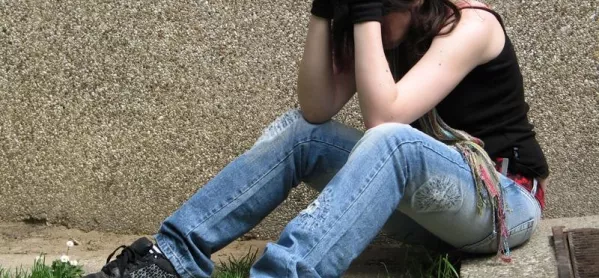Bottled-up anger against school

“I hate school!” It is a rare child who will not, at some point, claim to hate everything connected to education: teacher, classmates, subjects and homework.
But for some children, hatred of school can be a response to changes going on elsewhere in their lives.
A new book, What To Do When Your Child Hates School, aims to help teachers and parents address some of these underlying issues that might breed school hatred.
“Your child is trying to tell you something when they say school is boring or tell the teacher where to go,” the book states.
“Children are herd animals, and don’t act outside the herd unless something is wrong.”
Steering clear of full-blown school phobia, the book tackles many of the less serious issues that might cause pupils to develop a dislike of school.
For many pupils, changes in their out-of-school lives can generate school hatred. The book tells the story of Tanya, who moved to a new area when she was 13. Unable to adjust to her new school, her behaviour deteriorated, and she began to play truant.
But it is not only those who move to new areas who find moving house distressing. Alex was a primary pupil when he moved to a new house only minutes from his old one. But he nonetheless found it very difficult to adjust to changes in his daily routine, such as the new walk to school. As a result, his behaviour worsened, and he began to resist going to school at all.
Developmental changes also take their toll. Some pupils may find themselves going through puberty earlier or later than their peers. This can create a sense of isolation, and lead to teasing and bullying. The book says: “All this can add up to make the child unhappy at school and reluctant to attend.”
Or a sibling or family member may have developed a serious illness. Healthy siblings then develop a strong dislike of school in a bid to gain equal attention. Or they might be quiet and withdrawn, trying to be helpful and good.
Other children, however, can have a severe dislike of any change at all. Fore them, dealing with everyday aspects of school life becomes extremely challenging. Starting a new school year, moving classrooms or changing teachers become experiences fraught with fear.
The book cites eight-year-old Tiffany, who found it difficult to adjust to her first male teacher, and became angry and withdrawn as a result. Only after repeated enquiries were her mother and teachers able to find out what was upsetting her.
“It is impossible to avoid life’s challenges, but there are ways to help the child mature and handle changes,” the book states.
“Be positive, using play and stories to help the child to visualise and experience the positive benefits of change. Do not discuss the child’s worries and concerns with others in front of the child.”
In all these cases, it suggests, a sympathetic teacher can make all the difference. Instead of forcing pupils to take part in activities they actively dislike, teachers should attempt to discover the problem behind the behaviour. It recommends listening to troubled pupils, and then summarising what they have said and repeating it back to them.
“This helps them know you are listening. Then, keep quiet for a few minutes, to see if they will share anything else.”
- What To Do When Your Child Hates School by Antonia Chitty (White Ladder Press)
WHY PUPILS REBEL
Fear of change
Tiffany reacted dramatically when, for the first time, she was allocated a male teacher.
Her mother, Jo, said: “She was struggling with the teacher, and wouldn’t ask for any help. She bottled it all up and became withdrawn, and then became angry with close family.
“The school were very good, and they had a word with her, but used a softly-softly approach. It was a hard few months to get through, but once . they were aware of the problem, she seemed better . She has another male teacher this year, and she likes him very much.”
Moving house
Alex struggled when his parents moved to a new house, just a few minutes’ walk from the old one, midway through the school term.
His mother, Kat, said: “The change in routine really affected him. He had a routine for going to school, and knew when we needed to leave and which way we would walk .
“If you are moving, try to keep your routine as simple and normal as possible. We talked about moving house and read books about moving house.”
A sick sibling
Hannah’s sister, Alice, was born severely disabled, with continuing health problems.
Hannah said: “I wrote a lot of stories about Alice at primary school. I rarely talked about her to my friends or teachers, even though I felt stressed. Most weekends were spent visiting Alice in hospital, in a ward full of ill children.
“At school, I wasn’t coping. My behaviour wasn’t great. I was silly and didn’t concentrate. Several teachers expressed concern. I was told I was in danger of failing my GCSEs, and my parents were angry. I started to rebel, wore lots of make-up and dressed provocatively. This got me into trouble and made me unpopular. Don’t assume children are coping because they won’t talk about their stresses.”
Keep reading for just £1 per month
You've reached your limit of free articles this month. Subscribe for £1 per month for three months and get:
- Unlimited access to all Tes magazine content
- Exclusive subscriber-only stories
- Award-winning email newsletters



